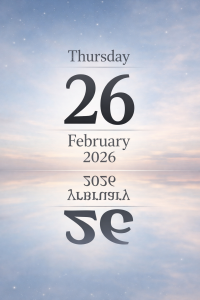In the early days of social media, hashtags were a tool for connection. They brought together strangers across borders who shared interests, beliefs or causes. But as with many digital tools, their power cuts both ways. While hashtags can amplify justice and community, they can also serve as vehicles for humiliation, hate and exclusion.
The recent move by France to pressure TikTok into banning the #skinnytok hashtag is one of the clearest signs yet that governments are beginning to take the darker potential of these digital markers seriously. Bravo!!
The hashtag was once a humble organisational symbol. It helped classify content, making platforms more navigable and communities more accessible. But over time, users discovered its potential to rally, incite and provoke. The hashtag became a megaphone, and not everyone using it had positive intent.
A scroll through history reveals hashtags like #fatpig, #proana (pro-anorexia), #meninist, #killallmen, and other terms which range from overt hate speech to more insidious forms of bigotry and harmful ideology. Even less obvious ones like #tradwife or #alphaenergy can, in certain circles, mask or enable regressive, exclusionary beliefs under the guise of lifestyle choice or empowerment.
What these tags often have in common is their seductive simplicity. They appear as casual or catchy shorthand but carry potent psychological and cultural weight. They allow users to express tribal belonging while attacking others, often behind the veil of irony, sarcasm or plausible deniability.
The creation and spread of such hashtags are rarely random. Psychologists point to a blend of group identity, cognitive bias and online disinhibition as key drivers. Online platforms reward attention, and controversy garners clicks. This attention economy incentivises the provocative, not the reflective.
People who feel disempowered or angry may use hashtags to vent or assert control. Others seek validation through outrage or mockery. Some are motivated by ideology, while others simply enjoy the chaos, the so-called internet trolls whose goal is to elicit emotional reactions.
There is also the issue of social proof. Once a hashtag trends, it accrues a kind of authority. Users see it widely used and assume legitimacy or popularity. Even those who might disagree with its premise may engage with it, inadvertently boosting its visibility.
The effects of toxic hashtags are not confined to cyberspace. They spill into real life. Body-shaming tags like #skinnytok or #thinspo contribute to eating disorders. Misogynistic or racist hashtags reinforce stereotypes, desensitise users to violence and justify abuse. Hashtags like #groomer, used to attack LGBTQ+ individuals, have triggered online harassment campaigns and even offline violence.
Studies show that repeated exposure to harmful online content increases desensitisation, especially in adolescents. These tags act as signals, drawing in those susceptible to radical ideologies, reinforcing echo chambers and spreading misinformation at alarming speed.
And for the targets of these hashtags (whether individuals, businesses, trends or entire communities), the psychological toll is real. Shame, anxiety, social withdrawal and self-harm are all documented outcomes of sustained online harassment or body-based discrimination.
Social media companies have long hidden behind the banner of neutrality and that “Section 230” clause, but that defence is wearing thin. Algorithms actively promote content with high engagement, often without accounting for context. A hate-filled post with thousands of interactions may be boosted simply because it performs well and swells their coffers.
Governments and advocacy groups are beginning to demand accountability. France’s action against TikTok’s #skinnytok is part of a broader push to confront how online spaces shape societal norms, particularly for young people. But banning hashtags is only part of the solution. Tech platforms need more nuanced moderation systems, cultural competence in their enforcement teams and above all, transparency about how content is promoted.
It is easy to shrug off harmful hashtags as just words. But in the digital age, words wield immense power. They create communities, shape perceptions and even incite action. The fight against discriminatory and degrading hashtags is not about censorship. It is about responsibility.
Social media users, especially younger ones, deserve digital environments where they are not reduced to body types or attacked for their identities. Hashtags should connect, not corrode.
The next time a hashtag trends, it is worth pausing to ask: what is it really promoting? And more importantly, who might it be hurting? Because in a world shaped by algorithms and symbols, every tag tells a story. We must decide whether that story uplifts or undermines.



